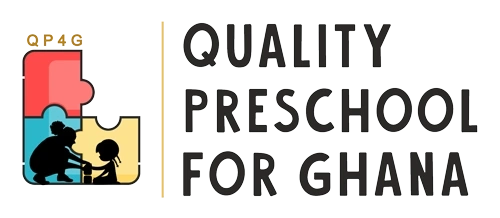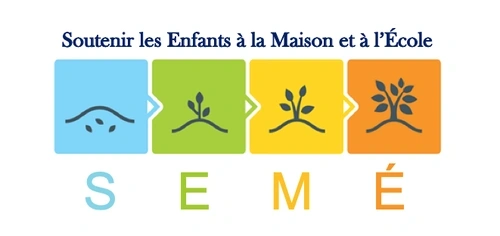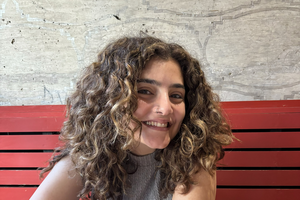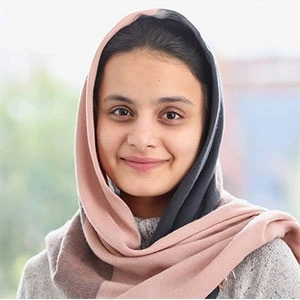The Research and Interventions Promoting Positive Learning Environments (RIPPLE) Lab group conducts research on how children’s early education experiences shape their development and learning, and how policies and programs can improve these experiences.

Led by Dr. Sharon Wolf, we conduct both descriptive and evaluation research, including large-scale field randomized trials. Our work aims to inform interventions and test the effectiveness of theoretically informed policy solutions to promote child development.
Working Worldwide
Our work spans several countries including the United States, India, Ghana, Côte d’Ivoire, Uganda, and elsewhere.
At the RIPPLE lab, we are a group of scholars with diverse research interests dedicated to conducting actionable research that improves the lives of children and their communities.

Dr. Sharon Wolf, Lab Director
Dr. Sharon Wolf is an Associate Professor at the University of Pennsylvania Graduate School of Education in the Human Development and Quantitative Methods Division. She works at the intersection of child development, education, and social policy. Dr. Wolf studies how children's early educational experiences affect their learning and development, and how policies and programs can improve these experiences, particularly for underserved children. She focuses on two primary areas related to child development: family poverty, and educational experiences and school-based interventions. Both areas incorporate applied research by using social interventions to promote children's well-being.
Dr. Wolf is also affiliated with Innovations for Poverty Action, the Penn Development Research Initiative, the Populations Studies Center, and has a secondary appointment in the Department of Psychology.
Lab Members
Autumn Brown
Doctoral Student, Penn Graduate School of Education
Autumn is a doctoral student and Research Fellow in the Human Development and Quantitative Methods program at Penn GSE. Autumn joins the lab after a ten-year career as an international aid and development practitioner specializing in the monitoring and evaluation of Education in Emergencies programs. Autumn's research interests are centered around leveraging her experience as a practitioner to generate actionable evidence on how to best measure and implement interventions to improve children's social and emotional well-being across understudied contexts.
Jiayi Ding
Research Assistant, RIPPLE Lab
Jiayi holds a B.A. in Social Sciences with Data Science from University College London, and is currently pursuing an Ed.M. in Statistics, Measurement, Assessment, and Research Technology at the University of Pennsylvania. Her research interests include educational policy evaluation, data-driven approaches to learning innovation, and the application of immersive technologies such as virtual and augmented reality in education. She has experience developing interactive dashboards with R Shiny, publishing on AR in geometry learning, and actively engages in interdisciplinary projects that bridge social science perspectives with quantitative analysis.
Heather Do
Doctoral Student, Penn Graduate School of Education
Hang (Heather) Do is a Ph.D. student in the Interdisciplinary Studies in Human Development (ISHD) program at Penn GSE, researching the long-term effects of childhood adversities on human development and exploring protective processes that foster resilience in children and adolescents across global contexts. She aims to use research findings to create contextually relevant intervention programs, inform policies, and develop reliable resources that support children and their families. Prior to her doctoral studies, she worked on disseminating a population-level measure of early childhood development for children from birth to age three; evaluating an intervention program promoting high-quality early childhood education in rural Asia; and studying the consequences of childhood maltreatment based on a 50-year follow-up cohort in the U.S. Heather holds a B.A. in Psychology from Oberlin College and an M.Ed. in Human Development & Education from the Harvard Graduate School of Education.
Brenda Fu
Doctoral Student, RIPPLE Lab
Brenda earned her B.A. from Zhejiang University and is currently pursuing a Ph.D. in Interdisciplinary Studies of Human Development at UPenn. Her primary research interest is in understanding the impact of parenting practices on children’s development, particularly across diverse cultural contexts.
Sara Jarrar
UNESCO Fellow
Sara Jarrar is a master’s student in the International Educational Development Program (IEDP) at PennGSE, where she is a UNESCO Fellow. She is also pursuing the Early Childhood and Family Studies certificate. Sara received her bachelor's degree in International and Global Studies from Middlebury College in 2019. Before coming to Penn, she spent over five years working in both formal and non-formal education programs in Palestine, managing and leading early childhood programs, academic and psychosocial programs, and school-based initiatives. She has extensive experience in program design, management, and monitoring and evaluation. Her work focuses on trauma-informed pedagogy, social-emotional learning, refugee education, and education in emergencies.
Yiman Ma
Graduate Assistant, RIPPLE Lab
Yiman is a first-year master’s student in the Interdisciplinary Studies in Human Development (ISHD) program at Penn GSE and a Graduate Assistant in the RIPPLE Lab. She previously worked in developmental psychology labs in Canada and China and is interested in how research can inform practices that support children’s social-emotional development across diverse contexts.
Tanya Nair
Research Manager, Learning Equity Initiative
Tanya holds a B.S. in Psychology from Davidson College and an M.S.Ed. in International Education Development from the University of Pennsylvania. Her work is grounded in a commitment to improving learning outcomes for marginalized students, with research interests at the intersection of data, student well-being, and systems thinking to drive meaningful change in classrooms.
Gunjan Sharma
Research Assistant, RIPPLE Lab
Gunjan is pursuing a master’s degree in the Statistics, Measurement, Assessment, and Research Technology (SMART) program at the University of Pennsylvania’s Graduate School of Education. Prior to Penn, she worked as a Research Associate at J-PAL South Asia, where she led education-focused randomized controlled trials across India. Her research interests include early childhood education, education systems in low- and middle-income countries, and policy-relevant measurement.
Previous lab members
What We Do
Active Projects
Parental Nudges Project in Ghana
The Parental Nudges Project (PNP) is a household-level intervention in Ghana designed in partnership with Movva Technologies to improve school-aged children’s learning outcomes in the aftermath of the COVID-19 pandemic and to address gender parity in educational outcomes. Through the program, parents and other primary caregivers receive text messages in simple English with behavioral nudges aiming to improve engagement with their children’s learning and social-emotional development. The goal of the messages is to bring parents closer to their child’s school life by prompting them to engage with their children on topics such as school, future plans and sharing how they overcame similar challenges at their age. Further, some households are randomly assigned to receive messages that promote gender-equitable outcomes in education and broader development. Partnering with Innovations for Poverty Action (IPA) and Movva, our goal is to evaluate the impact of the text-message-based behavioral change intervention on improving parental engagement in educational activities, parental beliefs about returns to education, as well as improvements in children’s learning, enrollment, attendance and gender parity in education. The co-Principal Investigator is Dr. Elisabetta Aurino.
The Impacts of COVID-19 on Children’s Learning and Development in Ghana
This study measures the effects of COVID-19 on children’s educational and developmental outcomes and builds on the Quality Preschool For Ghana (QP4G) study, a school-randomized trial conducted in 2015-1026 when children were in pre-primary school. Children and their families have been followed in an ongoing longitudinal study. The study’s results are providing the government and development partners with unique, real-time data to inform remote-learning and social-protection efforts, as well as the re-opening of schools which started in January 2021. The co-Principal Investigator is Dr. Elisabetta Aurino.

Quality Preschool for Ghana
Working with Innovations for Poverty Action and Ghana's Ministry of Education, this project developed and evaluated a teacher in-service and coaching program, with and without parental awareness meetings, to evaluate the effectiveness of these approaches in improving kindergarten quality and children's school readiness in Ghana. We found the teacher-training and coaching model improved classroom quality and children's literacy, numeracy, and social-emotional skills. We have been following the children ever since, are currently planning for our sixth round of data collection when children are in their fourth and fifth grades of primary school. The co-Principal Investigators are Drs. Lawrence Aber, Jere R. Behrman, and Elisabetta Aurino.

SEME: Soutenir les Enfants a la Maison et a l’Ecole (Promoting Learning and Reducing Child Labor in Côte d’Ivoire Through Family- and School-based Interventions)
In Côte d’Ivoire, educational quality and learning outcomes are very low, especially in rural cocoa-growing regions. Both poverty and the lack of quality and relevant education can push children out of school and into family farming. Partnering with the Ivorian government and an international NGO, we are testing a two-pronged approach to improve children’s schooling outcomes, testing individually and in combination two interventions: unconditional cash transfers and educational-quality improvement through Teaching at the Right Level (TaRL) paired with e-coaching. We use a cluster-randomized design to assign villages to (i) cash transfers, (ii) TaRL, (iii) cash transfers and TaRL, and (iv) controls. The co-Principal Investigators are Drs. Samuel Kembou, Kaja Jasinska, and Amy Ogan.
Completed Projects
Early adversity and children's school readiness
This project uses several datasets to explore how cumulative exposure to different types of early adversity–namely threat and deprivation–are associated with various domains of children's school readiness skills, as well as how children's relationship with their teachers moderates or exacerbates these associations.
EDUQ+: Evaluating the Impact of Text and Audio Messages for Parents and Teachers in Côte d’Ivoire (2018-2019)
Engaging parents in their children’s education via text messages has been shown to be effective at increasing children’s attendance in school and improving grades in Brazil, but it is unclear whether this model could be adapted to poorer countries where teacher absenteeism is high and many parents are illiterate. This randomized evaluation tests two versions of this model, using text and audio messages for parents either with or without messages to teachers in Côte d‘Ivoire. We measured impacts on student learning outcomes, child labor, parental engagement, and teacher professional outcomes.
Household Food Insecurity and Early Childhood Development in Ghana (2015-2018)
Household food security, defined as stable access to sufficient and nutritious food, is critical in the early years to meet a child’s developmental needs. In Ghana, we used longitudinal data on preschool-aged children and their households to investigate how household food insecurity was associated with early childhood development outcomes across three years. Children who experienced spells of household food insecurity had lower literacy, numeracy, and short-term memory on average. The co-Principal Investigator is Dr. Elisabetta Aurino.
Mentoring and Experiential Learning for Early Education Student Teachers in Ghana (2016-2017)
With the support of Innovations for Poverty Action, Sabre Charitable Trust, and Ghana Education Service in Ghana’s Western region, this study sought to evaluate a teacher-training and in-classroom coaching program delivered to student-teachers during their pre-service certification prior to teaching kindergarten. The intensive program was implemented through the student-teaching year, and these individuals were followed as newly-qualified teachers one and two years later. Preliminary results indicate that the program significantly improved student teachers’ implementation and knowledge of the national kindergarten curriculum. However, in the first year of posting as newly qualified teachers, these changes did not translate into improved teaching quality or impacts on child learning outcomes.
Media
Ghana’s Parent Trap. Rough Translation Podcast, Season 2 Episode 2.
National Public Radio (NPR). June 20, 2019
https://www.npr.org/2018/06/15/620313693/ghanas-parent-trap
What We Can Learn From Ghana's Obsession With Preschool.
Aizenman, N., WAER All Things Considered. June 19, 2018
http://waer.org/post/when-it-comes-preschool-does-father-really-know-best
Preschools In Ghana's Capital Challenge Call-And-Response System. Morning Edition.
National Public Radio (NPR). May 20, 2018
https://www.npr.org/2018/05/30/615388576/preschools-in-ghana-s-capital-challenge-call-and-response-system
Children are going hungry, and their futures are on the line. Evidence from Ghana. Elisabetta Aurino and Sharon Wolf. The Conversation. November 11, 2020.
https://theconversation.com/children-are-going-hungry-and-their-futures-are-on-the-line-evidence-from-ghana-148936
Food insecurity and its consequences for children’s development. Elisabetta Aurino and Sharon Wolf. April 20, 2020. Blog on Learning and Development (BOLD).
https://bold.expert/food-insecurity-and-its-consequences-for-childrens-development-covid-19-intensifies-the-problem/
Effects of harsh and violent discipline on child behavioural outcomes. Ghana News Agency. October 9, 2019
https://newsghana.com.gh/effects-of-harsh-and-violent-discipline-on-child-behavioural-outcomes/
Shaping Ghana’s Preschools: Converging Children’s Skills, Program Impacts, & Family Involvement. Dr. Yaw Amponsah Adoo. February 11, 2019.
https://www.modernghana.com/news/915070/shaping-ghanas-preschools-converging-childrens.html
The perils and promises of listening to parents. Sharon Wolf. June 15, 2018. Blog on Learning and Development (BOLD).
https://bold.expert/the-perils-and-promises-of-listening-to-parents/
Innovative training programme for KG teachers improves child learning – Research General News, Ghana Web. October 14, 2017
https://www.ghanaweb.com/GhanaHomePage/NewsArchive/Innovative-training-programme-for-KG-teachers-improves-child-learning-Research-590813
Study Looks at Link Between Readiness, Post-Recession Rise in Poverty. Hinton, M., Education Week. July 24, 2017
http://blogs.edweek.org/edweek/early_years/2017/07/great_recession_changed_neighborhoods_affected_school_readiness_study_finds.html
Study: With more U.S. children living in high-poverty neighborhoods, schools will see impact. Downey, M., The Atlanta Journal-Constitution. July 17, 2017
https://www.ajc.com/blog/get-schooled/study-with-more-children-living-high-poverty-neighborhoods-schools-will-see-impact/g69FLj4T6Cn4ZQtpaNnqMN/
More children living in high-poverty neighborhoods following Great Recession. Rice University. July 16, 2017
http://www.pressreleasepoint.com/more-children-living-high-poverty-neighborhoods-following-great-recession
"When 2017 Ghana Education Evidence Summit ends " Amoah, A.K., Ghana Education, Ghana Web. April 4, 2017
https://www.ghanaweb.com/GhanaHomePage/features/When-2017-Ghana-Education-Evidence-Summit-ends-525303
Sharon Wolf brings expertise in early childhood to Penn GSE, Ghana. Penn GSE Newsroom. September 19, 2016
https://www.gse.upenn.edu/news/sharon-wolf-brings-expertise-early-childhood-penn-gse-ghana
Contact Us
Sharon Wolf, Ph.D.
Email: wolfs@upenn.edu
Twitter: @WolfsSharon
Lab Inquiries:
Berta Bartoli
Email: bbartoli@upenn.edu

































